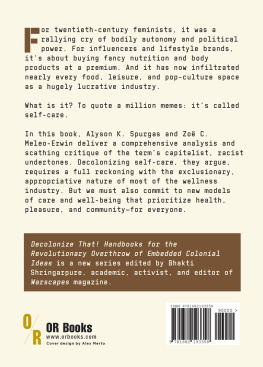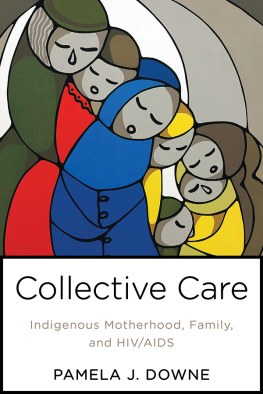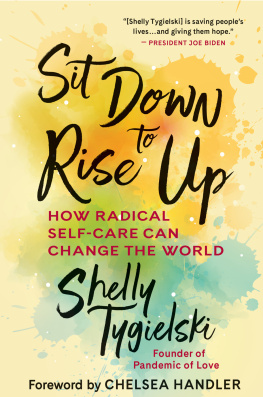The Care Collective - The Care Manifesto
Here you can read online The Care Collective - The Care Manifesto full text of the book (entire story) in english for free. Download pdf and epub, get meaning, cover and reviews about this ebook. publisher: Verso Books, genre: Politics. Description of the work, (preface) as well as reviews are available. Best literature library LitArk.com created for fans of good reading and offers a wide selection of genres:
Romance novel
Science fiction
Adventure
Detective
Science
History
Home and family
Prose
Art
Politics
Computer
Non-fiction
Religion
Business
Children
Humor
Choose a favorite category and find really read worthwhile books. Enjoy immersion in the world of imagination, feel the emotions of the characters or learn something new for yourself, make an fascinating discovery.
- Book:The Care Manifesto
- Author:
- Publisher:Verso Books
- Genre:
- Rating:5 / 5
- Favourites:Add to favourites
- Your mark:
- 100
- 1
- 2
- 3
- 4
- 5
The Care Manifesto: summary, description and annotation
We offer to read an annotation, description, summary or preface (depends on what the author of the book "The Care Manifesto" wrote himself). If you haven't found the necessary information about the book — write in the comments, we will try to find it.
The Care Manifesto — read online for free the complete book (whole text) full work
Below is the text of the book, divided by pages. System saving the place of the last page read, allows you to conveniently read the book "The Care Manifesto" online for free, without having to search again every time where you left off. Put a bookmark, and you can go to the page where you finished reading at any time.
Font size:
Interval:
Bookmark:

The Care Manifesto
The Care Manifesto
The Politics of Interdependence
The Care Collective
Andreas Chatzidakis, Jamie Hakim, Jo Littler,
Catherine Rottenberg, and Lynne Segal

First published by Verso 2020
The Care Collective 2020
All rights reserved
The moral rights of the authors have been asserted
1 3 5 7 9 10 8 6 4 2
Verso
UK: 6 Meard Street, London W1F 0EG
US: 20 Jay Street, Suite 1010, Brooklyn, NY 11201
versobooks.com
Verso is the imprint of New Left Books
ISBN-13: 978-1-83976-096-9
ISBN-13: 978-1-83976-097-6 (UK EBK)
ISBN-13: 978-1-83976-098-3 (US EBK)
British Library Cataloguing in Publication Data
A catalogue record for this book is available from the British Library
Library of Congress Cataloging-in-Publication Data
A catalog record for this book is available from the Library of Congress
Typeset in Sabon by Biblichor Ltd, Edinburgh
Printed and bound by CPI Group (UK) Ltd, Croydon CR0 4YY
Contents
Introduction:
Carelessness Reigns
Our world is one in which carelessness reigns. The coronavirus pandemic merely highlights this ongoing carelessness in many countries, including the USA, the UK and Brazil. These countries dismissed early warnings about the very real and imminent threat of pandemics to come, choosing instead to waste billions on military hardware against distant or non-existent threats and to funnel money to the already rich. This has meant those most at risk from Covid-19 health workers, social carers, the elderly, those with underlying health conditions, the poor, the incarcerated, and the precariously employed have received negligible help or support, while lessons that could have been shared on the best ways for protecting them have been largely ignored.
Yet long before the pandemic, care services had already been slashed and priced out of reach for many of the elderly and disabled, hospitals were routinely overwhelmed and in crisis, homelessness had been on the rise for years, and increasing numbers of schools had begun dealing with pupil hunger. Meanwhile, multinational corporations had been making huge profits out of financialising and overleveraging care homes while work in the care sector was subsumed into the corporate gig economy, making precarious workers not only more numerous but also hugely overstretched, vulnerable and thus less able to care.
At the same time, over the past few decades, ideas of social welfare and community had been pushed aside for individualised notions of resilience, wellness and self-improvement, promoted through a ballooning selfcare industry which relegates care to something we are supposed to buy for ourselves on a personal basis. This offers a wholly insufficient sticking plaster for these problems. In short, for a long time we had simply been failing to care for each other, especially the vulnerable, the poor and the weak.
It has tragically taken a worldwide pandemic to remind us of just how vital robust care services are. Moreover, Covid-19 has compelled many of us to adopt new forms of taking care from mutual aid to social distancing and self-isolation. All around the globe, from New York to London, Athens, and Delhi, people clap every week to demonstrate support for essential care workers. Rhetorically at least, governments worldwide have responded, and in sharp contrast to 2019, talk of care is currently everywhere. Even the least likely have rolled out major economic aid packages in the name of care for the nation. Surprising though these actions may have been, the aid packages have not been enough to counteract the decades of organised neglect suffered by our caring infrastructures and economies more generally. Moreover, recent analysis has shown that in too many countries these packages are tailored mostly to the benefit of the wealthy; in some cases, these seemingly progressive efforts actively work to disguise the fascist policies of those administering them. Indias Hindu-nationalist prime minister Narendra Modi outdid even his peers, introducing a welfare package called PM Cares as he continued to orchestrate the brutal clampdown on Kashmir and the delegitimisation of Muslim migrant workers.
So, although we are hearing much more about care in these unsettling days, carelessness continues to reign. Our manifesto is written to redress this lack of care.
The crisis of care has become particularly acute over the last forty years, as governments accepted neoliberal capitalisms near-ubiquitous positioning of profit-making as the organising principle of life. It has meant systematically prioritising the interests and flows of financial capital, while ruthlessly dismantling welfare states and democratic processes and institutions. As we have seen, this kind of market logic has led to the austerity policies that have significantly reduced our ability to contain the current pandemic leaving many hospitals without even the most basic personal protective equipment health workers need.
The undermining of care and care work, however, has a much longer history. Care has long been devalued due, in large part, to its association with women, the feminine and what have been seen as the unproductive caring professions. Care work therefore remains consistently subject to less pay and social prestige, at least outside its expensively trained elite echelons. The dominant neoliberal model has merely drawn on these longer histories of devaluation, while twisting, reshaping and deepening inequality. After all, the archetypal neoliberal subject is the entrepreneurial individual whose only relationship to other people is competitive self-enhancement. And the dominant model of social organisation that has emerged is one of competition rather than co-operation. Neoliberalism, in other words, has neither an effective practice of, nor a vocabulary for, care. This has wrought devastating consequences. The pandemic thus dramatically exposed the violence perpetrated by neoliberal markets, which has left most of us less able to provide care as well as less likely to receive it. We have, for a very long time, been rendered less capable of caring for people even in our most intimate spheres, while being energetically encouraged to restrict our care for strangers and distant others. No wonder right-wing and authoritarian populism has once again proved seductive. It has been easily fuelled, given the profound difficulties and unbearable collective anxieties of living in an uncaring world. Defensive self-interest thrives in conditions like these since, when our very sense of security and comfort is so fragile, it becomes harder to care for ourselves, let alone for others. In this way, care has been and continues to be overshadowed by totalitarian, nationalistic and authoritarian logics that rearticulate and reorient our caring inclinations towards people like us. The spaces left for attending to difference or indeed developing more expansive forms of care have been rapidly diminishing. To appropriate a term famously used by Hannah Arendt, a systemic level of banality permeates our everyday carelessness. Hearing about catastrophes such as the vast numbers of drowned refugees, or the ever-expanding homelessness in our streets, has become routine. Most acts of not caring happen unthinkingly. It is not that most of us actively enjoy seeing others left without the care they need, or that we share sadistic and destructive impulses. And yet we are failing to challenge the limits being placed upon our caring capacities, practices and imaginations.
Font size:
Interval:
Bookmark:
Similar books «The Care Manifesto»
Look at similar books to The Care Manifesto. We have selected literature similar in name and meaning in the hope of providing readers with more options to find new, interesting, not yet read works.
Discussion, reviews of the book The Care Manifesto and just readers' own opinions. Leave your comments, write what you think about the work, its meaning or the main characters. Specify what exactly you liked and what you didn't like, and why you think so.








